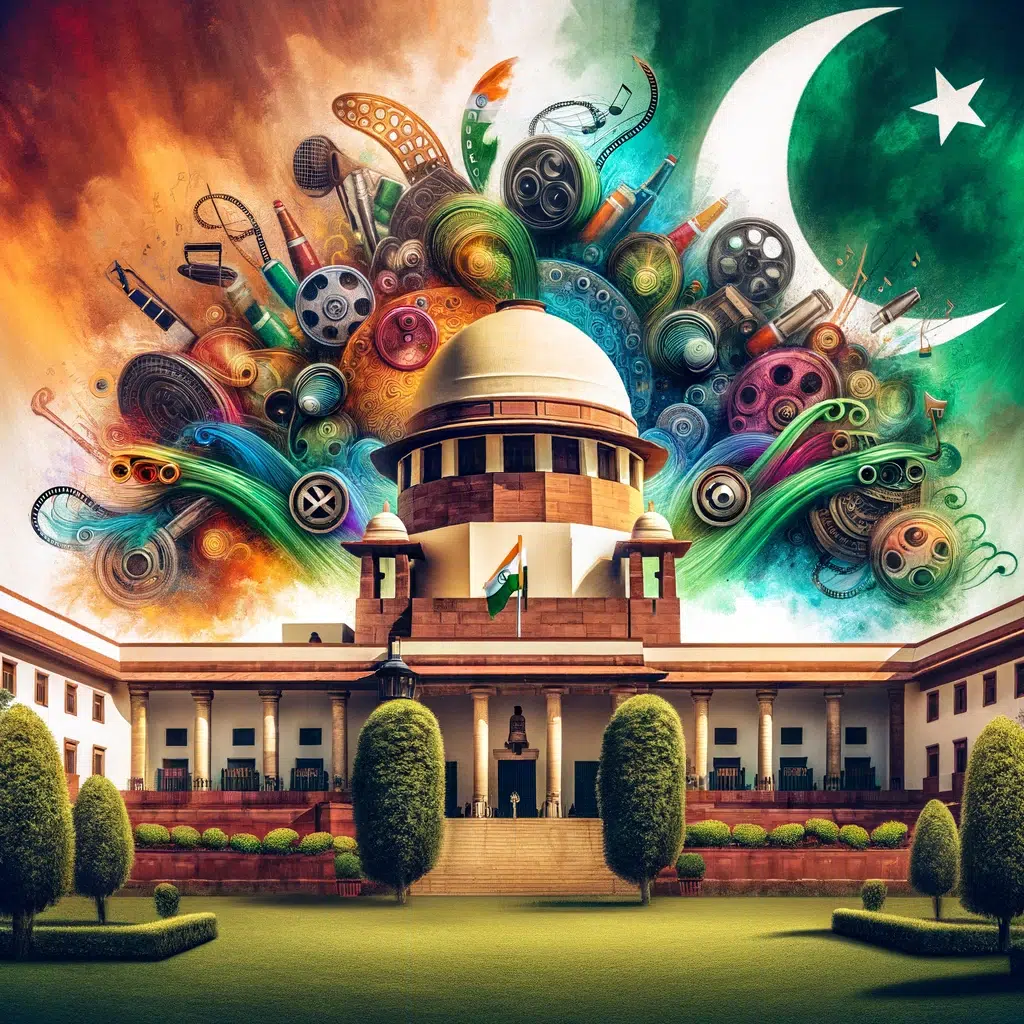
In a landmark decision that underscores the importance of cultural harmony and freedom of trade, the Supreme Court of India dismissed a petition seeking a blanket ban on the employment of Pakistani artists in India. This ruling is a testament to the court’s commitment to upholding fundamental rights and fostering international collaboration.
The Bench, comprising Justices Sanjiv Khanna and SVN Bhatti, supported the earlier judgment passed by the Bombay High Court. The petition, spearheaded by self-proclaimed cine worker Faaiz Anwar Qureshi, had requested a prohibition on Indian citizens employing or soliciting work from Pakistani artists. This move was a response to the All Indian Cine Workers Association (AICWA)’s decision against engaging Pakistani artists in the Indian film industry. The AICWA’s stance, publicized through various newspapers and social media platforms, had become a subject of heated debate.
Justice Khanna, before dismissing the petition, made a poignant remark, advising the petitioner against narrow-minded thinking. This statement not only reflected the court’s approach but also set the tone for a more inclusive and open-minded consideration of international cultural exchange.
The Bombay High Court, in its earlier dismissal of the petition in October, had noted that the plea was devoid of merit and represented a retrograde step against cultural harmony, unity, and peace. The High Court further highlighted the recent participation of the Pakistani cricket team in the Cricket World Cup tournament in India, citing it as a positive step by the Government of India towards peace and harmony.
The High Court’s reasoning that the petitioner’s notion of patriotism was misplaced carries significant weight. Imposing such bans would infringe upon the fundamental right of Indian citizens to conduct business and trade. This perspective aligns with the broader vision of a world where art and culture transcend national boundaries, promoting unity and understanding.
Qureshi’s argument centered around the premise that the absence of such a ban would lead to discrimination against Indian artists, who, according to him, face an unfavorable atmosphere in Pakistan. He also expressed concerns about Pakistani artists exploiting commercial opportunities in India, potentially to the detriment of Indian citizens.
However, the Supreme Court’s dismissal sends a clear message about the value of artistic freedom and international collaboration. In a world increasingly divided by geopolitical tensions, this decision by the Indian judiciary serves as a beacon of hope for those who believe in the power of art to unite and heal.
Art and culture know no borders. They are the languages that all humanity speaks, transcending political and national divides. This ruling, therefore, is not just a victory for Pakistani artists or the Indian film industry; it’s a win for cultural diplomacy and global harmony.
As global citizens, it’s imperative to acknowledge and celebrate this verdict, which reinforces the belief that art should be a bridge, not a barrier. The Supreme Court of India, through this judgment, has upheld the ethos of inclusivity, international collaboration, and the fundamental rights of freedom of trade and expression.



